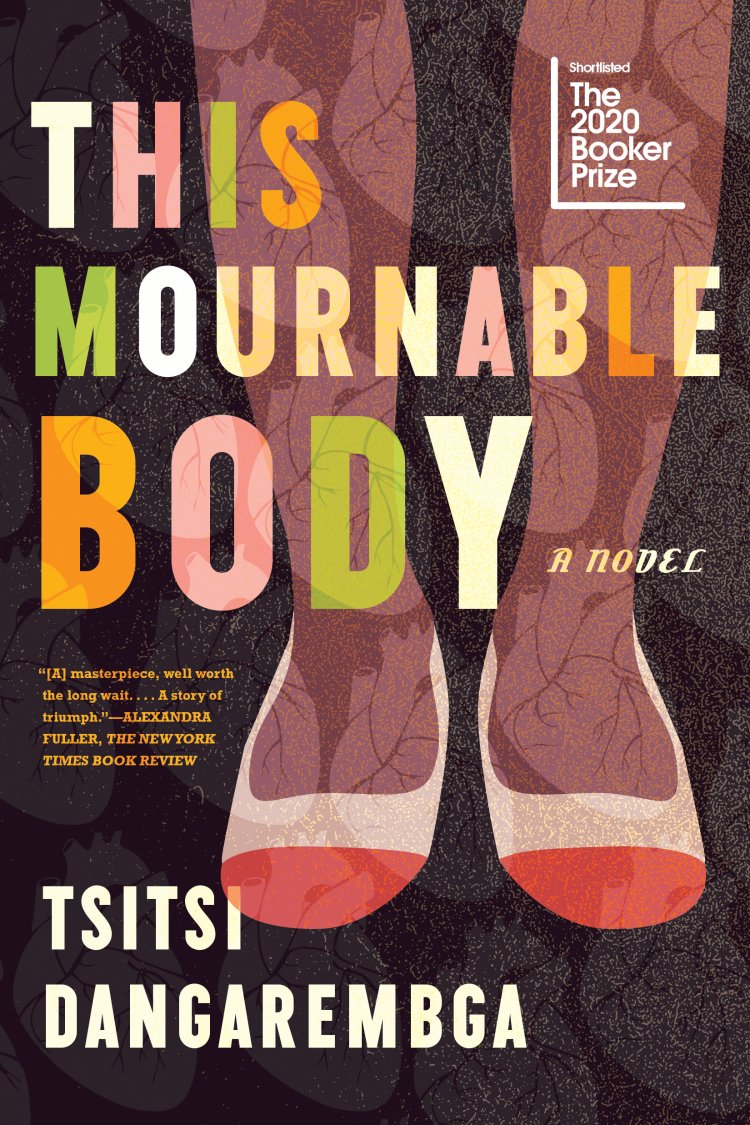This Mournable Body

Rating: 3.8/5
Author: Tsitsi Dangarembga
Publisher: Graywolf Press
Publication Date: 7 August 2018
Language: English
Genre: Coming of Age Fiction
ISBN-10: 1555978126
ISBN-13: 9781555978129
Cost: Rs. 349.30 (Kindle edition)
Format: Paperback
Pages: 298 (Kindle edition)
Plot: In this psychologically charged novel - the third in the trilogy, author Tsitsi Dangarembga returns to her 1988 classic ‘Nervous Conditions’ protagonist, Tambu. Three decades have passed, the young Tambu is in her late 30s.
Driven by ambitions, Tambu takes shelter in a widow’s boarding after leaving her copywriting job. Eventually, she finds herself as a biology teacher, however her feminine aspirations and potential reach the rock bottom when after multiple humiliating episodes she confronts her mother in her village, who is, perhaps an alter-ego of herself.
Tambu transforms her village into an eco-tourism hub. But when her mother, the lead hostess of the celebration planned, strips off her top being agitated in front of all the European tourists, Tambo resigns, once again!
Told in second-person narrative, the three-part novel set in the post-independence Zimbabwe reverberates with the theme of betrayal!
Review: From one job to another, Dangarembga’s novel etches the journey of a young woman, Tambudzai Sigauke, and her desperate attempt to become something out of herself. The lives and trials of women in a country ripped apart by colonialism - Tambu emerges in the novel as a frenzied individual who continuously strives to become what she is not and was never meant to be. But she is no saint – she is a thief, a liar, an offensive tipper, an opportunist, and what we call, quite a golddigger!
‘This Mournable Body’ subtly inserts symbolism in its anecdotes. When Tambu is kicked out of the hostel by Mrs. May, she is grimly reminded of her age. However, the hostel symbolizes a cocoon and Tambu a caterpillar turned into a butterfly spreading its wings, which in a way is not so grim as it paves way for Tambu to test her mettle in this vast, unfair world.
The voice that speaks in the story and addresses Tambu, herself as “you”, seems to be the future self of Tambu, who has already been there and now, critiques her junior self from an invisible sphere. It also appears from this monologue, “You have failed to make anything of yourself,” that she herself detests her past actions, the foolishness, and frustration that dragged her inside a psychiatric ward. The women from her past who visit her at the hospital carry symbols of betrayals. The hopes of a nation died with the war, and so did its ideals.
Condemning herself Tambu utters, “yet your mother endures even more bitter circumstances than yours. How, with all your education, do you come to be more needy than your mother?”
The title of the novel bears a reference to ‘Unmournable Bodies’ (2015), an essay by Teju Cole for the ‘New Yorker’. While Cole alluded to the death of the civilians that meant nothing to the westerners, Dangarembga has adopted the phrase suggesting the body of Tambu, who represents the downcast women beneath the patriarchal sways.
Milestones of the Book:
- Nominated for the Booker Prize 2020
- One of the Finalists for the St. Francis College Literary Prize 2019
About the Author: One of the eminent authors of Zimbabwe, Tsitsi Dangarembga received Commonwealth Writers’ Prize, Africa Section in 1989 for her debut novel ‘Nervous Conditions’. She was the first black woman from Zimbabwe who wrote and published her novel in the English language. BBC enlisted this celebrated work by Dangarembga in its top 100 books that have shaped the world catalog in 2018. Born on 4 February 1959 in Mutoko, Southern Rhodesia (present Zimbabwe), she spent a few years of her childhood in England where she learned to speak English. Later, she became the first black woman of Southern Rhodesia to acquire a bachelor’s degree. In her career, Dangarembga has worked as a teacher as well as a copywriter. Her short story ‘The Letter’ came second in a writing competition and was published in ‘Whispering Land’, an anthology. Dangarembga’s written works comprise of three plates, three novels in a trilogy, and one short story. She is also one of the notable playwrights and filmmakers of Zimbabwe and has written the story of ‘Neria’ (1993), the highest-grossing film ever made in Zimbabwe.















































